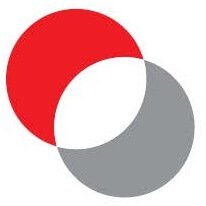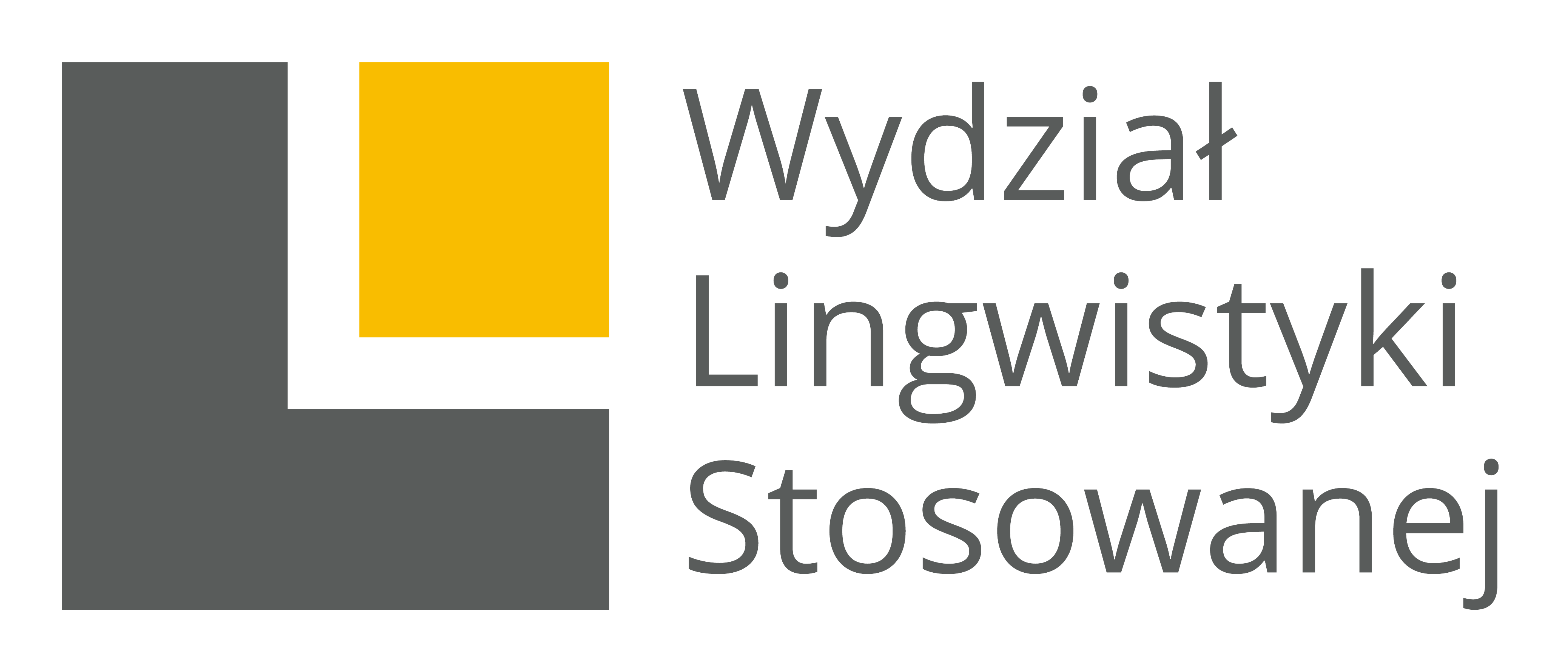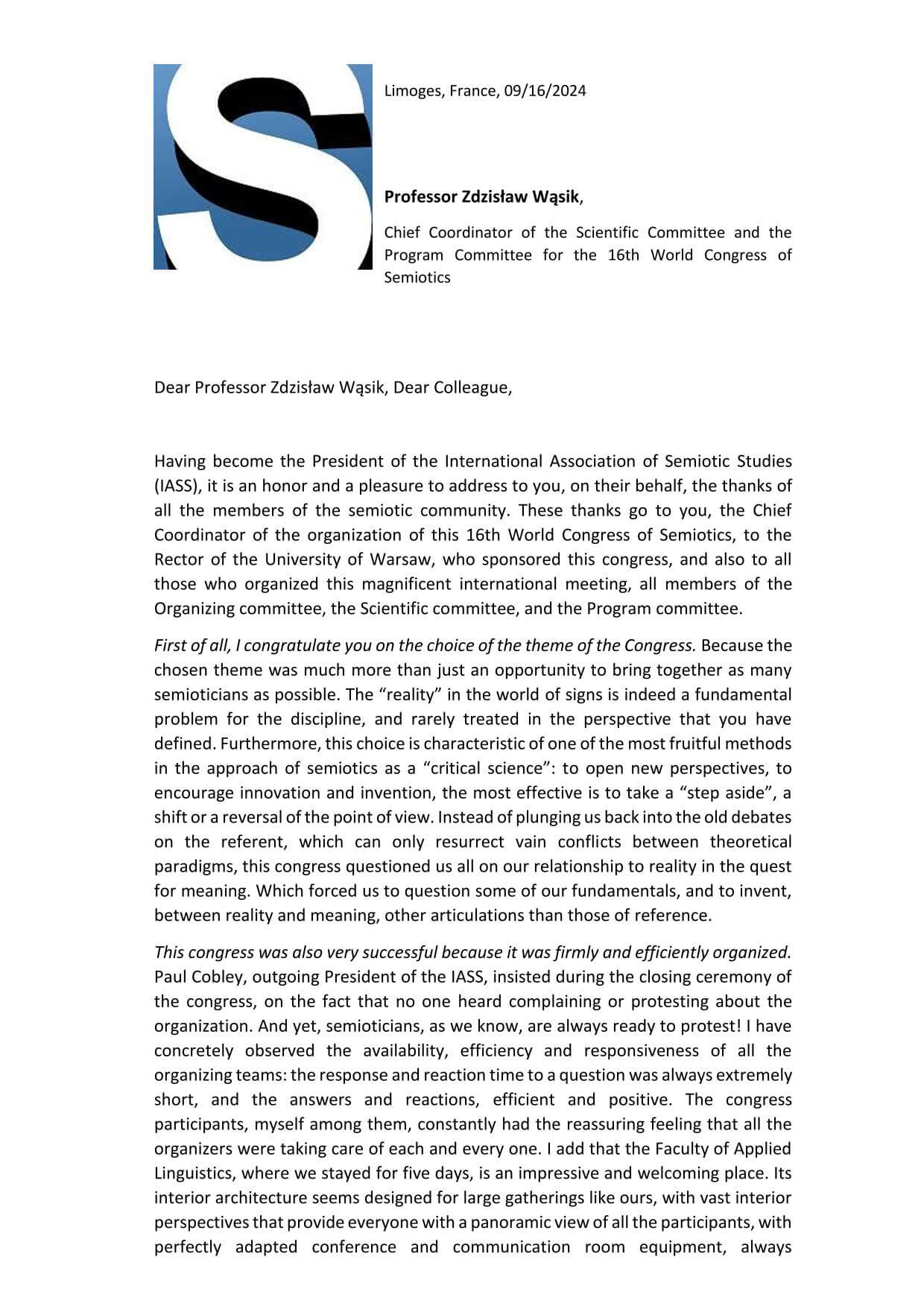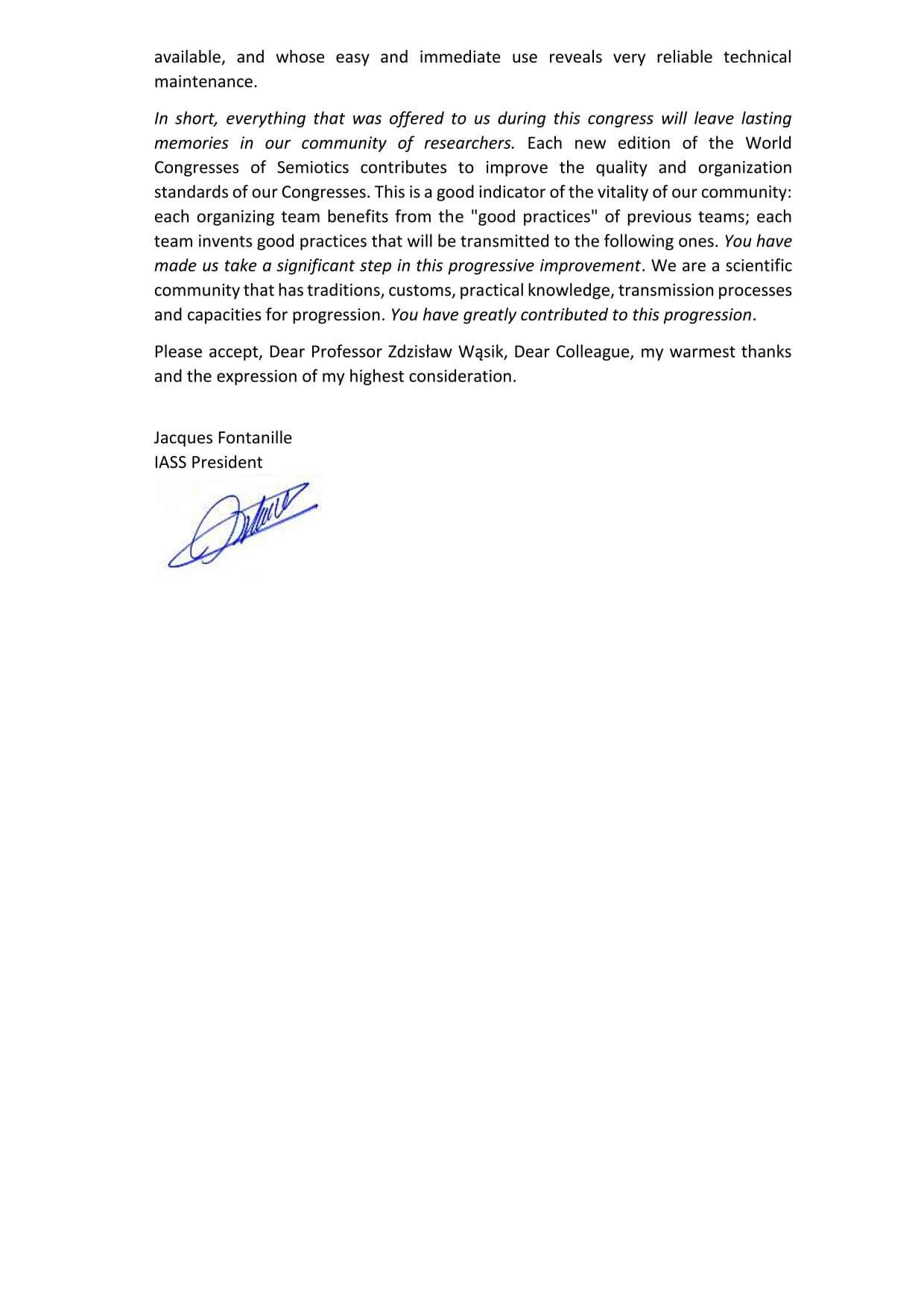Dziękujemy za zaangażowanie w 16. Światowy Kongres Semiotyczny

Limoges, France, 09/16/2024
Professor Zdzisław Wąsik,
Chief Coordinator of the Scientific Committee and the
Program Committee for the 16th World Congress of
Semiotics
Dear Professor Zdzisław Wąsik, Dear Colleague,
Having become the President of the International Association of Semiotic Studies (IASS), it is an honor and a pleasure to address to you, on their behalf, the thanks of all the members of the semiotic community. These thanks go to you, the Chief Coordinator of the organization of this 16th World Congress of Semiotics, to the Rector of the University of Warsaw, who sponsored this congress, and also to all those who organized this magnificent international meeting, all members of the Organizing committee, the Scientific committee, and the Program committee.
First of all, I congratulate you on the choice of the theme of the Congress. Because the chosen theme was much more than just an opportunity to bring together as many semioticians as possible. The “reality” in the world of signs is indeed a fundamental problem for the discipline, and rarely treated in the perspective that you have defined. Furthermore, this choice is characteristic of one of the most fruitful methods in the approach of semiotics as a “critical science”: to open new perspectives, to encourage innovation and invention, the most effective is to take a “step aside”, a shift or a reversal of the point of view. Instead of plunging us back into the old debates on the referent, which can only resurrect vain conflicts between theoretical paradigms, this congress questioned us all on our relationship to reality in the quest for meaning. Which forced us to question some of our fundamentals, and to invent, between reality and meaning, other articulations than those of reference.
This congress was also very successful because it was firmly and efficiently organized. Paul Cobley, outgoing President of the IASS, insisted during the closing ceremony of the congress, on the fact that no one heard complaining or protesting about the organization. And yet, semioticians, as we know, are always ready to protest! I have concretely observed the availability, efficiency and responsiveness of all the organizing teams: the response and reaction time to a question was always extremely short, and the answers and reactions, efficient and positive. The congress participants, myself among them, constantly had the reassuring feeling that all the organizers were taking care of each and every one. I add that the Faculty of Applied Linguistics, where we stayed for five days, is an impressive and welcoming place. Its interior architecture seems designed for large gatherings like ours, with vast interior perspectives that provide everyone with a panoramic view of all the participants, with perfectly adapted conference and communication room equipment, always available, and whose easy and immediate use reveals very reliable technical maintenance.
In short, everything that was offered to us during this congress will leave lasting memories in our community of researchers. Each new edition of the World Congresses of Semiotics contributes to improve the quality and organization standards of our Congresses. This is a good indicator of the vitality of our community: each organizing team benefits from the "good practices" of previous teams; each team invents good practices that will be transmitted to the following ones. You have made us take a significant step in this progressive improvement. We are a scientific community that has traditions, customs, practical knowledge, transmission processes and capacities for progression. You have greatly contributed to this progression.
Please accept, Dear Professor Zdzisław Wąsik, Dear Colleague, my warmest thanks and the expression of my highest consideration.
Jacques Fontanille
IASS President
Udostępnij:


